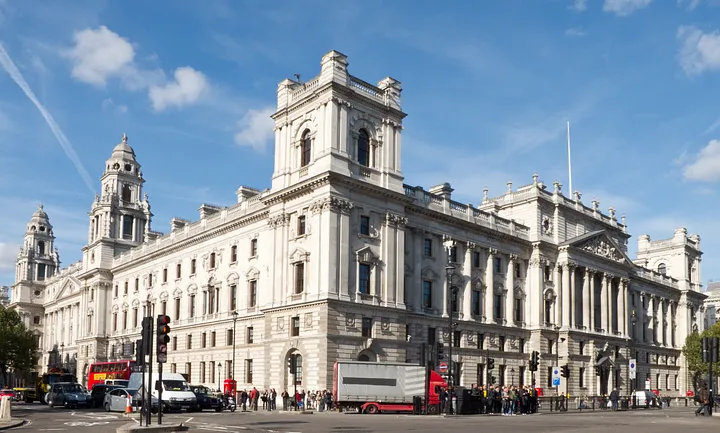- Posted on
- • Politics
Brexiteer optimism is still based on dodgy economics
- Author
-
-

- User
- aydin
- Posts by this author
- Posts by this author
-

I was fascinated to read an op piece by one of the small band of Economists for Free Trade (previously “for Brexit”) that attempted to lay waste to the UK government’s views on the economic impact of Brexit.
What was fascinating was not the fact that a small number of economists happen to have different views on the future that awaits the UK in a number of different scenarios. Is was the fact that they seem willing (despite 2 years after the vote having been shown to ignore the basic facts of economics and consistently the worst at forecasting the impact of the vote) to press ahead with shouting down those saying that Brexit has no clothes on.
Firstly, Mr Blake criticises the treasury for assuming serious damage to the economy due to what he describes as illegal Non-Tariff Barriers. These NTB’s however do not need to be “formally” imposed. The mere fact that there is a set of regulations and bodies that regulates the same forms a barrier to those outwith. For example, the entire UK aviation supply chain for services is dependent on being regulated by EASA. If the UK falls out of the EU without agreement (as many such Brexiteers indeed wish) and does not immediately ensure that the UK aviation industry is regulated by EASA (and their feared ECJ, of course), then this forms a (perfectly legal) NTB. Blake is either willfully or accidentally ignoring this fact. This is but one of hundreds of example of regulated industries which are dependent on such close ties to the EU. The UK aviation and auto industry can simply forget their current service and supply contracts if such agreement is not reached. As he admits himself, 80% of the UK economy is service-based, and therefore dependent on being regulated in such a way that allows such services to continue to be provided.
For his second “coup de grace”, Blake then raises the comparison with Switzerland and their mere 0.12% cost of friction in trading with the EU due to border costs. As with partner in crime Dan Hannan, he ignores the fact that the Swiss friction is minimised due to presence of 126 bilateral agreements, membership of EFTA and of course Shengen. If the UK falls out of the EU without a deal, then those border costs will not be anywhere near as low as he claims (without reference, btw, so impossible to fact check).
He then goes on to criticise the EU single market on a number of counts. Firstly saying that language is a barrier that means it’s not as “unified” in impact as it should be. True, however companies can and do sell across such boundaries as they need it worth doing. So product and service value and volumes impacts the likelihood of companies to bother doing so. There are plenty of examples of cross border mergers and acquisitions in many industries (from FMCG to telecomms) to deal with the very cultural and language barriers he speaks of. I met one cloud technology company just a few weeks ago who have grown their own capacity in 6 main European countries organically to deliver their core services across these boundaries — and have outgrown similar UK companies due to their willingness to reach across perceived language barriers. It’s UK companies and culture that needs to change for growth, not the EU.
He also maintains the lie that there are protectionist 20% tariffs on food and manufactured goods into the EU, ignoring all the existing successful EU trade deals and special tariff discounts (particularly for developing countries) that reduce such barriers to 0% in some cases, and on average less than 4.5%.
He does of course repeat the fact that the EU has not established a well integrated FTA for services as it has for goods. Of course he forgets the fact that continued European integration is part of that very alignment necessary to improve the trade in services in a frictionless way. Why he ignores that fact is best left to the imagination perhaps.
Finally he goes on to quote Australia’s performance post liberalisation. Of course, he insists on ignoring the fact that he is comparing an era for Australia that had limited trade deals in place, with a UK on the verge of leaving one of the largest Free Trade Areas in the world, with a highly integrated supply and service chain.
Leaving the EU is going to hurt. How badly depends on what happens next. Economists continuing to ignore the facts of trade gravity theory or misleading through judicious ignoring of the facts of existing deals within and outwith the EU do nothing to help mitigate the damage.